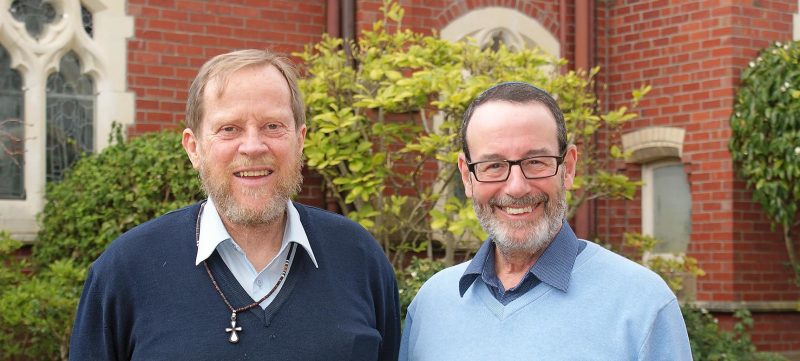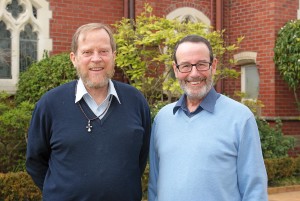by ROWENA OREJANA
Interfaith dialogue is a divine obligation, according to leading Australian Rabbi, Fred Morgan.
Rabbi Morgan was invited by the New Zealand Bishops Conference committee on interfaith relations to speak on 50 years of Nostra Aetate (In our Time), the Vatican II Declaration on the Relation of the Church with Non-Christian Religions. The talk was held on September 29 at St Peter’s College in Auckland.
Rabbi Morgan said Nostra Aetate transformed the relationship between Jews and Christians.
“It laid the groundwork for the radical transformation in relationship, certainly from the Church’s perspective, and as a result of Nostra Aetate, Catholics have really opened up much more to other religions, not just Judaism, but all other religions,” he said.
The aim of interfaith dialogue is not to convert but rather to help other faiths look deeper into their own beliefs.
“I have a bit of what we call in Yiddish a mishuggah, which means a craziness, an obsession. My obsession is to convince people that interfaith [dialogue] is of the highest religious value today,” he said.
He said the important questions to ask when meeting people of other faiths is “What do I do? When I look on the faith of the other, what obligation befalls me simply by the fact that they are another human being?
“It really worries me when people take a very negative approach to interfaith work, because they are denying the reality of God’s world. We live with other people,” he stressed.
Nostra Aetate, said Rabbi Morgan, was a product of its time. “Pope John XXIII would not have been able to initiate the Second Vatican Council if it hadn’t been the right time. So it’s a case of the right statement coming out by the right people at the right time,” he said.
As a result, Catholics became comfortable visiting other places of worship.
Interfaith dialogue groups have grown. There is a greater openness of Church leaders to people of other faiths.
“I’m thinking of the visible interactions that are symbolically so significant. Like Pope Francis with Rabbi [Abraham] Skorka and Imam [Omar Abboud] in Israel in the Holy Land,” he said.
“A picture speaks a thousand words and I think those interactions are incredibly important, because there are a
number of people out there who know nothing about Nostra Aetate, they know nothing about dialogue, but when they
see these men standing together and being friends, then it’s telling them that something’s changed in the world and
people react positively to that.”
He said the impact on the Jews, though, has been muted. “Not many Jewish people reflect on their relationship to the Christian world. They just let it happen. I think many Jewish people are of the live and let live mentality,” he said.
He added that Jews have a very long memory, noting the interactions between the two historically had been fraught
with danger for Jews, culminating in The Holocaust.
“That’s not to say there weren’t individuals who acted to protect the Jews, and we are very much aware of that, but overall the attitudes of the Church seemed to be inward looking at best and antagonistic at worst,” he said.
But, he noted, things are changing, even among Orthodox Jews.
“I am a progressive Jew. And this interest that I have in interfaith relations is very much a feature of progressive Judaism. But what is really heartening is that there are Orthodox Jews who are beginning to respond, as well,” he said.
He said it is difficult to say where the relationship between the two faiths would go, as it can often be overtaken by political upheavals. But what he would like to see is deeper dialogue.
“For me, it’s valuable to do this on a theological level as well as a human level, because there is, I think, a lot of messy theology that can be cleaned up a bit by people asking themselves questions taking into account the existence of the other,” he said.
He said it is about time that we bring our religion to the table and see how we can work closely together.
“I would like to see Jews and Christians working more closely together to, we have an expression, to mend the
world, to repair the broken world,” he said.


Reader Interactions